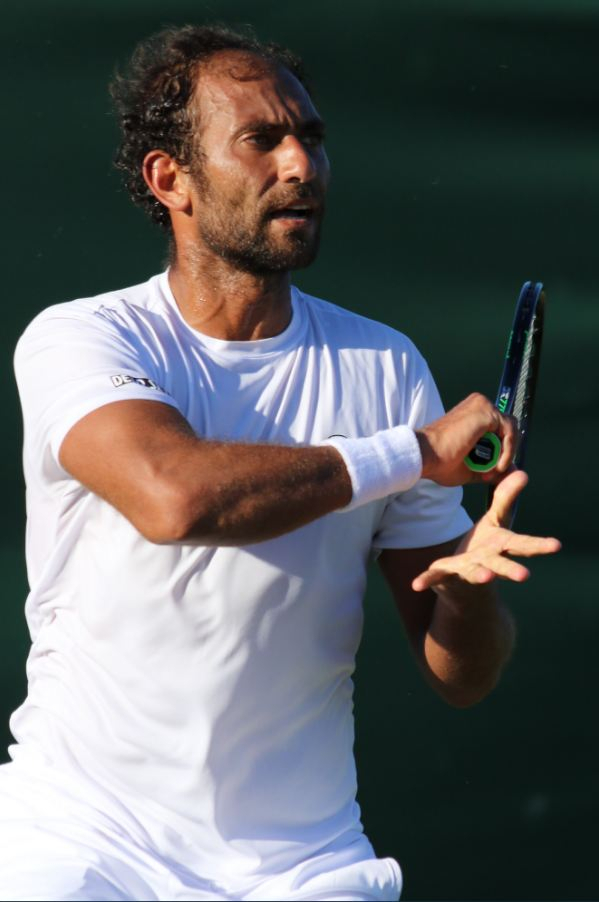Mohamed Safwat may have crashed out in the first round of the Australian Open on Monday, but he was quickly looking to the future as he prepares to become the first Egyptian to compete in tennis at the Olympics later this year.
The 29-year-old is no stranger to making history, drawing praise in his homeland last week when he became the first Egyptian to qualify for the main draw at Melbourne Park since Ismail el Shafei in 1978.
Safwat's ranking to rise
He looked like nailing his first win at a Grand Slam on Monday when he won the first set and held two breaks of serve in the second, but Frenchman Gregoire Barrere reigned him in to win a tight contest 6-7(8) 7-6(1) 6-4 7-6(5).

"Today I think I had a good match," Safwat told reporters. "I had my chances. It just needed one or two tweaks and it could have been a different story." Safwat, whose ranking is expected to rise to about 150th in the world after his trip to Melbourne, hopes to use the boost to qualify for bigger tournaments where he can play against higher-ranked players ahead of the Tokyo Games in July.
"Playing in a big tournament and playing tougher opponents - I think it's the best preparation," said the Egyptian number one, who qualified for the Olympics after clinching gold at the African Games in Morocco last August.
Second appearance at a Grand Slam
This week was Safwat's second appearance at a Grand Slam after he got a game as a lucky loser at the 2017 French Open but was promptly defeated by Bulgaria's Grigor Dimitrov.
Safwat said Egyptian tennis had struggled in the past to match the achievements of Ismail el Shafei, who reached the Wimbledon quarter-finals in 1974, attributing the country's struggles to lack of experience and knowledge.
"It takes a lot to build a player, it takes years, and needs a lot of investment," he said. "Once we have the knowledge, once we get to understand how to do things, how players can reach the top 100, it will be easier."
Despite coming up short on both of his forays into Grand Slam tennis, Safwat said he hoped that he would be able to inspire and pass on his experience to the next generation of Egyptians. "I'm always looking forward to helping them as much as I can," he said. "When I reach where I want to be, when I'm done with my career, I can pass along the knowledge and help them to achieve their goals."









